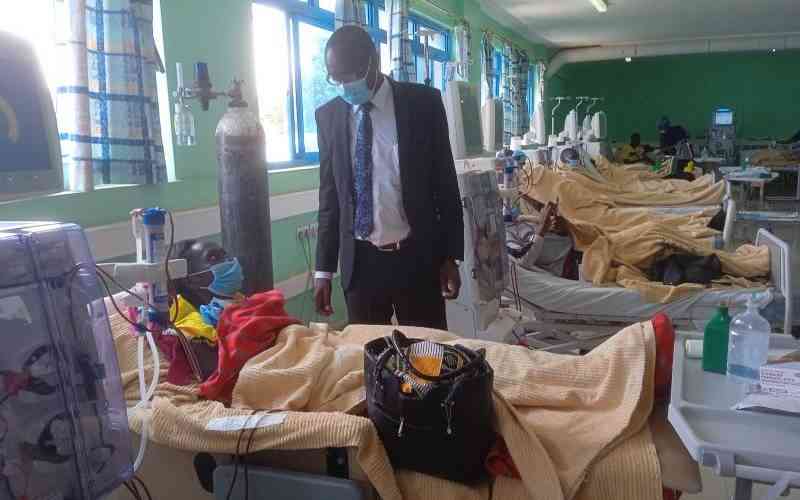×
The Standard e-Paper
Join Thousands Daily

Kidney patients in Kenya are struggling to access care despite increasing demand for the services in the country, a report by the Ministry of Health has revealed.
In the report titled Kenya Health Facility Census, only two per cent of hospitals in the country offer renal (kidney) services. At least 12,384 hospitals across the country were assessed to reveal the state of renal services.